|
Here’s something I never thought I would say: I’m starting to miss large gatherings of strangers. I miss movie theaters, crowded restaurants, and busy swimming pools. I miss being able to choose which direction I go down a grocery store aisle. I miss seeing the Wawa cashier's patient smile – or grimace – when I insert my credit card upside down. And, maybe, more than anything, I miss baseball. I miss baseball because, for six months each year, it takes my mind off stuff that I probably have no business thinking about. Like politics. Without baseball I find myself spending more time watching or reading about politics. One news channel blames all our problems on Republicans, another blames them on Democrats. I'm hearing that protesters are heroes... or criminals. I’ve had to consider whether a machine-gun-toting lawyer was right to defend his mansion, or if the seemingly peaceful people passing by his front yard posed a threat. I’ve watched statues get knocked down and businesses get burnt up. I’ve followed the daily COVID statistics and prayed for those who are sick or have lost loved ones. I’ve also prayed for better days ahead, and that everybody be a little kinder to everybody else. I’ve prayed that politicians stop acting like children, and that children be able to get back to just being… children. Maybe you have, too. Many of our prayers haven’t yet been answered, but there is a glimmer of sunshine on the horizon. Baseball season starts this week. Sure, it’s only sixty games, but it’s baseball. Real baseball. With real baseball players. Our local team, the Tampa Bay Rays, begins play against the Blue Jays from Toronto – or Pittsburgh – or Buffalo or Dunedin or Baltimore or wherever they wind up playing their home games. It doesn’t matter, because it’s baseball. Ji-Man Choi, my favorite Ray, will smile and do his little wiggle when he takes the field. Ji-Man understands that he’s making a lot of money to play a kids’ game. He goes out and has fun. I"m going to have fun, too. Friday night I’ll be in my green recliner ready to watch Ji-Man and his colleagues from twenty-nine other cities take our minds off the stuff that has consumed so much of our time. For three hours I’ll root, root, root for the home team. If they don’t win it’s… just fine, because there will be another game the next day. And the next day. And almost every day through September. Maybe I’m shallow or maybe I’m just not very smart. Whichever it is, just give me baseball. Give me the optimism that comes at the beginning of every season, when each team is still in first place and each player is poised to have his best season ever. Who cares if the sounds of cheering crowds are being pumped in through stadium speakers, or if managers and umpires are arguing through masks? When the first pitch is thrown, baseball season is on. Take me out to the ballgame… take me out to the crowd… Your comments are welcome!
9 Comments
Photo courtesy of Sandy Scheibe There’s a new sitcom starting this week on ABC. It’s called Bless This Mess, and it’s about a New York City couple who move to a Nebraska farm, where they learn that the simple life isn’t as simple as they thought.
You think? Someone at Twitter really wants me to watch Bless This Mess, because they keep pushing it onto my timeline. The previews remind me of the reality show a few years ago when Paris Hilton and Lionel Ritchie’s daughter moved to the country. It was called The Simple Life, and it garnered decent ratings for a year or two, until its self-absorbed big-city stars got into trouble. From time to time I caught a few minutes of it. The name alone made me smile – The Simple Life, like living in Hollywood or New York City is so stressful that people need to escape to something easier. What makes them think that country living is so easy? Or simple? And why are these shows comedies? The stars always seem to be running from cows, crashing tractors, or napping in poison ivy. I’m not going to lie. If you malign farmers, farm life, agriculture, or country living, you’ll get an argument from me. If you’ve spent your entire life in the city or suburbs, the argument will intensify, because you have no idea what you’re talking about. I grew up in the country. Our dog, Patches, could nap on the side of the road and not worry about being struck by a car. Few vehicles came by, and the ones that did knew Patches would be there. See that picture at the top? That’s my hometown, Galestown, Maryland around 1971. Those kids are eating watermelon in the middle of the road. And the dog in back? That’s Patches. But the most important thing to remember about country kids? They can do anything. Anything. Some city folk assume that country kids grow up to become farmers. Many do, fortunately, but they also become doctors, mechanics, and accountants; butchers, bakers, and candlestick makers; preachers, teachers, and United States Presidents; homemakers, homebuilders, architects, sales executives, body shop owners and New York City makeup artists. They drive trucks and race cars, and become judges and lawyers. They find success at home and, in a turn of events that would surprise Paris Hilton, they often prosper in the city. And because they are country kids, they rarely become lazy, entitled, or complacent. Or too big for their britches. They’re willing to work their way up the ladder of success without knocking others off in the process. If they fall, they get up and try again. No finger-pointing or blaming others. That doesn’t work in the country and it doesn’t work in life. See, you can take the kid out of the country, but you won’t take the country out of the kid. They figure out those huge corporations and start to climb, or they take over multi-million dollar businesses known as family farms. Maybe they’re not as poised as their suburban peers, at least at first, but what they lack in polish, they make up for with determination. So, enjoy Bless This Mess or The Simple Life. Laugh at the portrayals of big-city folks down on the farm. And remember, it’s only TV – thirty minutes of fun. And also remember that during those thirty minutes some country kid is a step closer to achieving their dream. Because country kids can do anything. The Great Hipster Experiment is about to come to an end. Read about it here if you missed the story of how my wife Robin and I came to live in a tiny loft apartment in downtown Kansas City.
What an experience! We’ve done the things that inner-city hipsters do. We’ve hopped on streetcars, dined at hole-in-the-wall restaurants and diners, attended street festivals and art shows, frequented farmer’s markets, and listened to live jazz. Last week, I tried one of those rental scooters that are left at the curb. That was fun. I’ve done our laundry in the basement laundromat. That’s not so fun, especially when you find left-behind socks and underwear in the dryer. We’ve discovered how beautiful and full of history Kansas City is. It’s a true renaissance town. Old buildings are being restored to their former glory, many becoming condominiums and lofts that meet the increasing demand for downtown living space. Old neighborhoods, like Columbus Park and the West Side, are becoming vibrant again. And because it’s Kansas City, there are the fountains. So many fountains. More than anything, I’ve discovered that a small-town feeling can be found in the inner-city. Kansas City’s urban population is nearly a half million people, but among them are a few friendly faces I’ve come to know. They include the bakery owner who has my Diet Coke on the counter when I come in, the attendant at the Grand Avenue parking garage who yells out a cheerful hello when I pass on my morning walks, and the security guard at the public library who encourages me to get my work done. I’ll miss them. They are my community. Among the observations I’ve made… people in shorts and blue jeans say hello and smile more than people in business attire. Friends’ warnings to “be safe,” while appreciated, proved unnecessary. Over the twenty-five miles I walk each week I’ve never felt threatened. Quite the contrary, I’ve been greeted as warmly on “those streets” as on my walks in the suburbs. On a sad note, I’ve witnessed mental illness. And homelessness. The two often go hand-in-hand. The Kansas City Public Library is open to all, and many homeless men and women take advantage of the air conditioning and soft chairs to rest during the day. They often bring along their possessions: bags of clothes, rolling carts, and even pop-up tents. I often wondered where they went at night, then a couple weeks ago, on a morning walk, Robin and I came across a settlement beneath an overpass. I’ll think about them in a few weeks when the temperatures drop and sleeping outside becomes difficult. In conclusion, the biggest difference between suburban and city life is how open the latter is to public view. In the suburbs, we can hide our problems by remaining in our air-conditioned homes, cars, and cubicles. Down here, in the city, it’s a lot harder to conceal those things we might not want others to see. That panhandler on the corner of Broadway and Independence is two feet away, and there’s no rolling up the car window or turning up the radio to avoid him. The woman on the streetcar who smells bad and looks like she’s been sleeping under a bridge will pass my way again. And again. If not her, someone like her, reminding me that there’s so much good remaining to be done. But, for now, as we prepare to move south, I say a heartfelt thanks to Kansas City. I’ll miss you. Several people have asked if I would do it again, live in the heart of the city. I’d do it in a heartbeat. Only next time, I want my own washer and dryer. 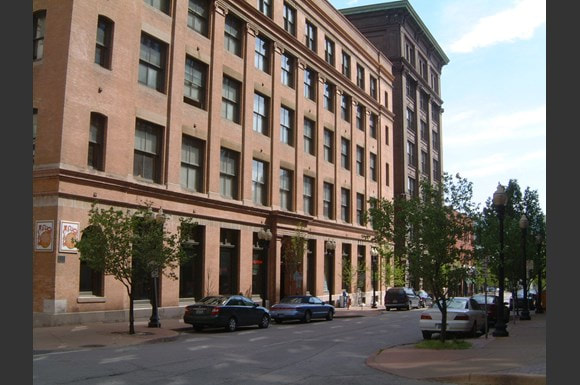 Our New Home - For Two Months Our New Home - For Two Months Greetings from Kansas City, where in the span of a few weeks, my wife Robin and I have experienced some significant life changes. It all began a few months ago, when we decided it was time to sell our suburban KC home. We’re here only a few months a year, and between taxes, utilities, and upkeep, it will be more reasonable to rent a place when we come back from Florida each year to see family and friends. Our house sold in one day. Great, but our plans were to stay in town through September. On July 13, our third grandchild, Milo Matthew was born, and we want to get to know him, so we decided to rent a furnished home or apartment for a couple months. One thing led to another, and we are spending August and September in a tiny loft apartment in Kansas City’s garment district. Maybe you’ve seen this kind of place. Exposed brick and huge windows. Kitchen and living room combined into one tiny space that is separated from the bedroom by a partial wall. It’s cool and hip and close to everything. We’re not cool or hip, but we’ve decided to learn. So here we go. Saturday evening, our first night downtown, we hopped on KC’s beautiful streetcar for our maiden voyage. We felt cool and hip. There was a jazz and rock festival in the street below our loft. We listened from our IKEA sofa… until ten-thirty, when it was time to go to bed and the jazz and rock continued to make the walls vibrate. We’ve decided that we can only be cool and hip until ten pm. There’s a learning curve involved with being hip loft-dwellers. First, you have to give up your privacy if you want any natural light. The ten-foot high windows of our loft overlook a narrow street of similar buildings. Some tenants keep their shades pulled, while others go about their day unconcerned that their every move can be seen by scores of other people. We’ve watched people iron their clothes, play with their dogs, and become engrossed in their phones and laptops. Some will see us looking and wave. Others pull the shades. Most don’t care. And then, there’s my morning walk, four or five miles most days. Out in the suburbs or in our Florida neighborhood, I don’t have to worry about traffic lights or the rush of oncoming traffic. The surroundings blend into the background. Not so in downtown. This morning, I dodged a bus and a tow-truck, tripped numerous times over crumbling curbs, and nearly caved in to the tempting smells of cinnamon rolls from a street bakery. I passed abandoned storefronts, hookah bars, and a place with a bright sign screaming TOTALLY NUDE. Also on my route was a secluded building that serves as a retreat for cancer victims and their caregivers, and a half-dozen homeless people. I’m making light of life in the city, but there’s no humor in cancer or sleeping on a bench in a dog park. You see homeless people differently when you pass within three feet of them and they say hello, especially when you’ve had someone close to you experience life on the street. Like most hipsters, Robin and I work from home. The problem now is, there’s only room for one desk. Robin gets that. My writing desk, a beautiful antique that belonged to my grandfather, is temporarily in storage. My new workspace is the Kansas City Public Library. Today is my first day working from the library’s second floor. I felt cool and hip as I walked the four blocks to the library this morning. It’s a grand facility, as you can see from the photo, but I have to confess that it’s hard to get anything done with all those books around. Hipsters are good at multitasking, though, so I’ll persevere until it’s time to go home and decide which hip restaurant we want to blow our diets on. Oh yeah, we don’t have cable TV anymore. Like most hipsters, we cut the cord. I felt pretty good about it, until I realized that Jeopardy isn’t available from Hulu or Netflix. There’s also the issue that I don’t really know how to turn the cord-cut TV on or off. When Robin goes to China for work in a few weeks, I’ll be limited to books and the movie theater around the corner. We don’t have a washer and dryer anymore, either. There is a coin-laundry in the building, where people dump their clothes and leave them for hours on end. I’ll never do that. The thought of someone rummaging through my laundry makes me squeamish, so I’ll probably sit nearby while our stuff agitates and spins. Maybe I can use that time to figure out which cool, hip new play to see at one of the nearby theaters. Or perhaps I’ll run to Jimmy John’s for an Italian sub. Jimmy John’s might not be hip and cool, but they’re freaky fast. Well, that’s about all for now. It’s time to go home. We need to go to the grocery store, as Robin wants to make cabbage soup. I’m wondering how our neighbors will feel about the smell of cooked cabbage. It doesn’t sound cool or hip, and if I encounter someone in the hallway complaining about the smell, I’ll probably just commiserate with them and never mention that the cabbage is ours. You could combine all the principals, superintendents, counselors, curriculum directors, lunch ladies, school board members, and librarians into one dynamic, high-paid, superhuman and they still wouldn’t have the impact of a single great teacher. Deep down, I’ve always known this. When graduates visit their alma mater, it’s never to see the superintendent or the curriculum director; it’s that favorite teacher or coach. I’ve watched fifty-year-olds become children again in the presence of their favorite teachers. Even some of the most successful folks in the world, powerful people who are on a first-name basis with other powerful people, can’t bring themselves to call their beloved fourth-grade teacher by her first name. How do they do it? How, in a world full of good teachers, do a few impact so many? Well, I think I know how they do it. They don’t just teach kids, they reach kids. They’re also a little bit crazy. Mr. Lake was the first teacher I loved. He taught fifth grade. Prior to Mr. Lake, my teachers had all been female, white, and mostly old. They were kindly, except for one who could be as mean as a snake. I liked them well enough, but Mr. Lake was different. Obviously, he was male. At that time, other than the principal and the custodian, the educators in my little world were female. Mr. Lake was also African-American. Fifth grade was the year our country school integrated, and Mr. Lake was the first black educator I encountered. Unlike the matronly teachers I’d had before, he was also a stylish dresser who wore bright socks and white shoes. He shot hoops at recess and spun Marvin Gaye and Fifth Dimension 45's on the school’s phonograph. Once, just before Christmas, we shoved the desks out of the way and danced. But none of that would’ve mattered had Mr. Lake not pulled my desk alongside his when he realized I couldn’t see the board. Because of the extra help he gave me, I started getting B’s instead of C’s. By Christmas, I didn’t like Mr. Lake anymore. I loved him. I wanted to be him. I got white shoes for Christmas so I could look like him. I became Mr. Lake's shrimpy, pale, white-shoe wearing, visually-impaired Mini-Me. Fortunately, in high school and college there were more great ones. Mr. Carrier treated us like adults instead of kids. Dr. Boles sat on his desk with his legs folded lotus-style and cracked jokes while he taught management. On the first day of class, Dr. Lovett said grades didn’t matter, so she was giving everyone an A, provided we showed up prepared to discuss the topics. Because of them, I developed an idea of the kind of teacher I wanted to become. And remember, I said those special teachers are also a little bit crazy. Crazy helps. Years ago, Richard Mulligan played an escaped mental patient who becomes a school’s outstanding teacher. Here’s a clip from the movie, aptly titled, Teachers. But crazy, doesn’t mean they do crazy things. I had a teacher who called himself Space Turkey. He walked on desks and said outrageous things. He was crazy, but he was a terrible teacher. By crazy, I mean the willingness to step out and try new things, or try old things in new ways. I’m talking about the high school teacher who turned me on to chess, then turned me on to poetry. I’m talking about people like my friend Tom, a shop teacher who would fire up his BBQ grill on Wednesday nights and invite kids to come work on projects and eat hot dogs. Soon, kids were enrolled in shop who would’ve never been there before. I’m talking about Bob, an art teacher who never turned away a student, even when his classes had forty kids or more. Once he had them, he always found a way to make them love art. I’m talking about Mike, an auto body teacher who allowed his best students to drive the hot rods he restored as a hobby. I’m talking about colleagues I would’ve paid to watch teach, like Robin, Sheryl, Deb, Norma, Jimmy, Susan, Greg, and Janie. Though I don’t get to see them teach, I hope I’m talking about my kids, Cody, Lynnea, Alison, and Kelcy. It’s Teacher Appreciation Day. Is there a crazy educator in your past who made the difference? A hero who reached you? Who made you feel you could do anything? Feel free to share your stories below or on my Facebook page. Thanks for reading! A few weeks ago, my brother Jeff and our childhood buddy, Scott flew down for an extended weekend. Though I regularly see my brother and occasionally visit Scott, it was our first extended get-together since we were teenagers. We took in a Baltimore Orioles spring training game, went fishing in the Gulf of Mexico, and ate a lot of good food.
While at dinner the first night, we were talking about stuff we did as kids, when out of the blue, Jeff asked Scott if he remembered his childhood bicycle. Scott did. I did too. I remembered because Scott’s bike was very cool. It was bright green and had “French Handlebars.” We reminisced for a bit before Scott thought to ask why Jeff was interested in his bike. “Because I found it in the woods.” I didn’t want a dog. Robin wanted a dog. The kids wanted a dog. Not me. “I’ll be the one who winds up walking and feeding it,” I protested. That was twelve years ago. For the most part, I was right. The kids are on their own now. Robin does baths, but I do most of the walking, feeding, and trips to the groomer. Next week, I’ll take Chloe for our last walk, and I’m choking up as I write this. Chloe became ours after another family purchased her from the breeder, then returned her. From the beginning, she was different. Her first week with us, she freed herself from her kennel while we were gone. We came home to find her lounging on the sofa, waiting for company. No accidents, no chewed furniture. When the same thing happened two days later, we got rid of the kennel and left Chloe free to roam the house. She never made us regret that decision. She loves car and airplane trips, our back yard in Kansas City, and Bradenton’s warm weather and birds. She visits our neighbors, Carol and Joe, and devours their cat food when they’re not looking. She breakdances and rolls over for treats, intuits when we’re going to the vet or groomer, and will do anything for a puppy cone at Culver’s. She’ll come running when we say treat and run away when we say bath. She watches TV and barks at animals on the screen, even the cartoon kind. When Chloe was still young, she loved for us to drop her off at the end of our dead-end street so she could run home. All we had to say was, “You want to run?” and she’d go nuts. Robin used to have a basket on the front of her bike that Chloe rode in. She was a true queen. We found out last year that Chloe has Cushing’s Disease. Now she sleeps most of the time, has trouble breathing, and struggles to control her bladder. Her tummy is distended and she can’t get enough water. Occasionally, though, the old Chloe will reappear, like last week when she went to her toy pile, pulled out a favorite, and brought it to me. She’s slipping away from us, though, so this morning the decision was made to… well, you know. The next eight days will be our Chloe Farewell Tour. We have a quick trip planned to Savannah, Georgia. She’ll go along for one more joyous car ride. Robin has replaced dog food with hamburger. We’ll have puppy cones at Culvers, belly-rubs on the couch, walks as long and far as she wants, and lots of time to say good-bye. Then we’ll make that last trip to the vet. I guess I wanted a dog after all, because I’m sure going to miss this one. Postscript, April 19, 2019: Chloe wasn't able to complete the entire tour. It was the morning of the third day, in Savannah, when her condition worsened and we had to seek out a local vet. Robin was holding Chloe when the end came, and though I'm writing this a full year later, the memory brings tears. We will adopt another dog someday. If it was Robin's decision to make alone, we would have one now, but frequent travel and our work has led us to put off the inevitable.
We are having a thunderstorm as I write this, and all these months later, the first thing that comes to mind when I see a flash of lightning and hear the crack of thunder is that I need to check on Chloe. Give your puppy a hug for us. The fact that you’re here probably means you’re a reader. After all, why else would you check out an author’s blog?
I’m a reader, too, always have been. Fiction is my favorite, but I also love biographies, sports, and true-crime. Television has never had the same allure of books, though I must say that This Is Us comes darn close. Starting when I discovered the Childhood of Famous American series of biographies in the Hurlock Elementary School library, I’ve been hooked on books. Even during the summer, I would be at the corner every other Tuesday when the bookmobile arrived. There have been so many books, so many good books, over the years, but when it comes to those that rocked my world, the list is small. I’ve narrowed it to five, but could easily include five more. Or ten. Or fifty. My list includes four works of fiction and a self-help book. Four would be considered contemporary, one is a classic. Four were written by men, one by a woman. They cover topics that greatly interest me, including social justice, small-town life, and leadership. You’ll find bits and pieces of them in what I’m writing today. So, without further ado, my Top Five. If you're interested in learning more, I've linked the cover photos to each book's Amazon page. In a few minutes, we’re going out to eat with friends, to a local place that is known for great seafood. We’ll eat a lot, talk a lot, and, hopefully, ignore our cellphones.
But that last one – ignoring our cellphones -- is hard, isn’t it? When did our phones become so essential? Maybe the better question is, why did they become so essential? It’s easy enough to make fun of that group of kids you see at Taco Bell with their noses glued to their phones, but I have to use every bit of willpower to not be just like them. I’m at my worst when it’s just Robin and me. Say we’re going someplace. A song comes on the radio, maybe Rupert Holmes’ Escape – The Pina Colada Song. Robin, who is driving, might ask, “Did he ever sing anything else?” Boom! Just like that, I’m surfing the web to find out. Yes, by the way, just so you don’t have to look this up yourself, Rupert Holmes’ other Top 40 hits were Him and Answering Machine. It never stops. We drive past a house with a For Sale sign out front and I’m looking up the details. We’re not even looking to buy a house. Earlier today, I thought of Gene Rayburn, the host of the 1960’s and ‘70’s TV show, Match Game. Is he still alive? Ten seconds later, I knew that he passed away in 1999 from congestive heart failure. R.I.P. Gene. My smart phone has made me the world’s most inquisitive person. And also one of the rudest. I’ll try hard not to whip it out during dinner, but if our friends want to know how many calories there are in shrimp tacos or when the next high tide is in the Gulf of Mexico, I’ll have to find out for them. That’s my job. “No school today.”
People in two of the three parts of the country where I’ve spent my life heard those three words this week. “Dorchester County, Maryland… no school today.” “Kansas City, Missouri… no school today.” And here in Bradenton, Florida… well, it’s seventy and sunny, but I didn’t come here to rub it in. No. School. Today. Admit it, if you grew up in an area where it snows, those three words trigger something inside you. The little kid in you surfaces, if only for a moment. It’s there. When I was a kid, we got news of school closings on WCEM radio from their long-time morning announcer, “Curly in the Early” (the inspiration for the radio station owner in my book, The Resurrection of Hucklebuck Jones). For a while, I thought Curly was the person actually in charge of making the decision, never dreaming that someday I’d be that person. And what did we do when we found out? Go back to bed? No siree. We would pile on the layers and head outside. Galestown, Maryland’s population was 120, and it seemed half were kids. The best snow days were when Galestown’s millpond froze over enough to skate. When the ice was especially thick, our fathers would build a roaring fire to keep everyone warm while they skated (yes, fire on the ice). There could be dozens of people there on any given night. Kids skated. Parents visited. Dogs sniffed. Fast-forward to college. It was rare for Western Kentucky University to cancel classes, but when they did, look out. Western’s sports teams are the Hilltoppers, and they’re not called that for nothing. The campus is situated 250 feet above the rest of the city. Have you ever sledded down a 250-foot hill with a couple thousand of your best friends? In the dark? On a lunch tray? I broke a tooth during the winter of 1980 doing just that. |
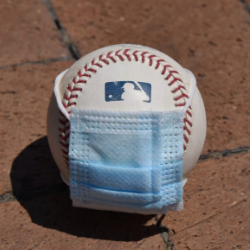

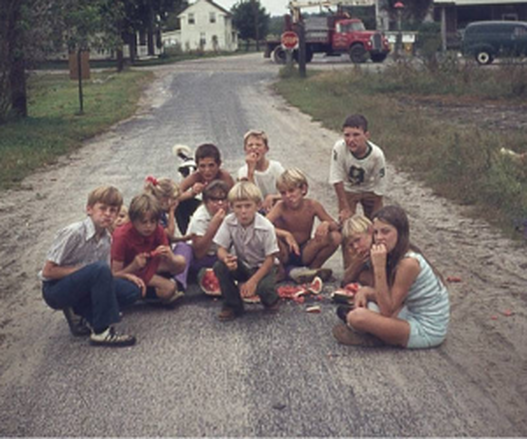
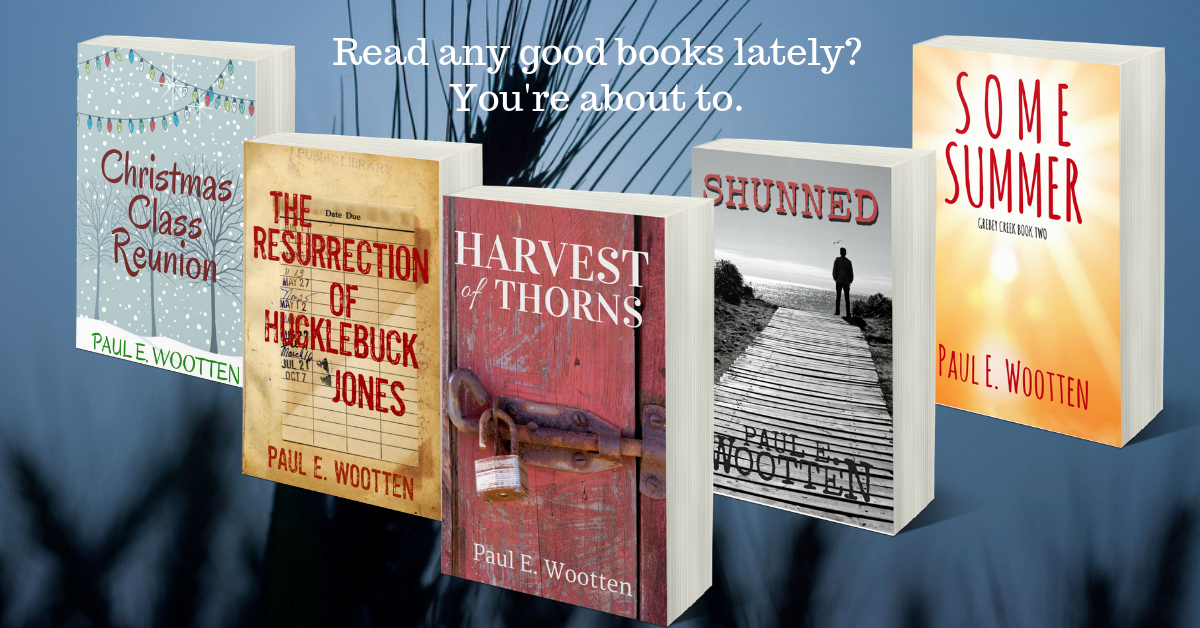


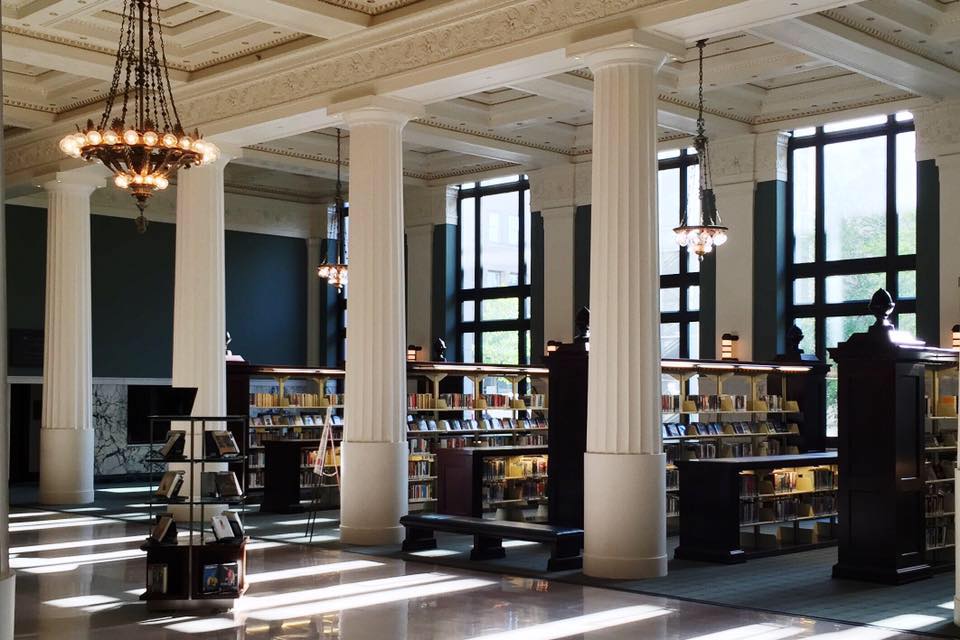

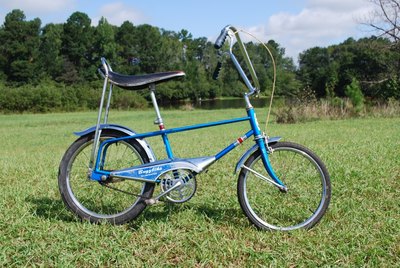
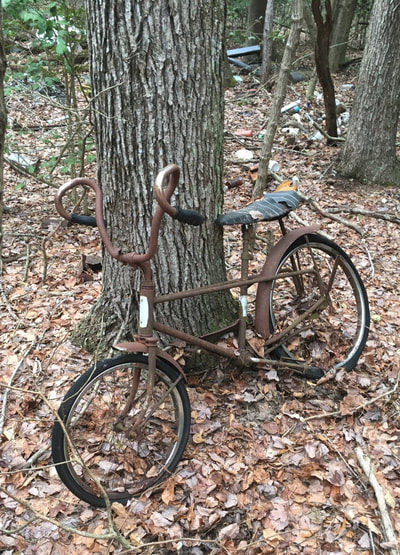


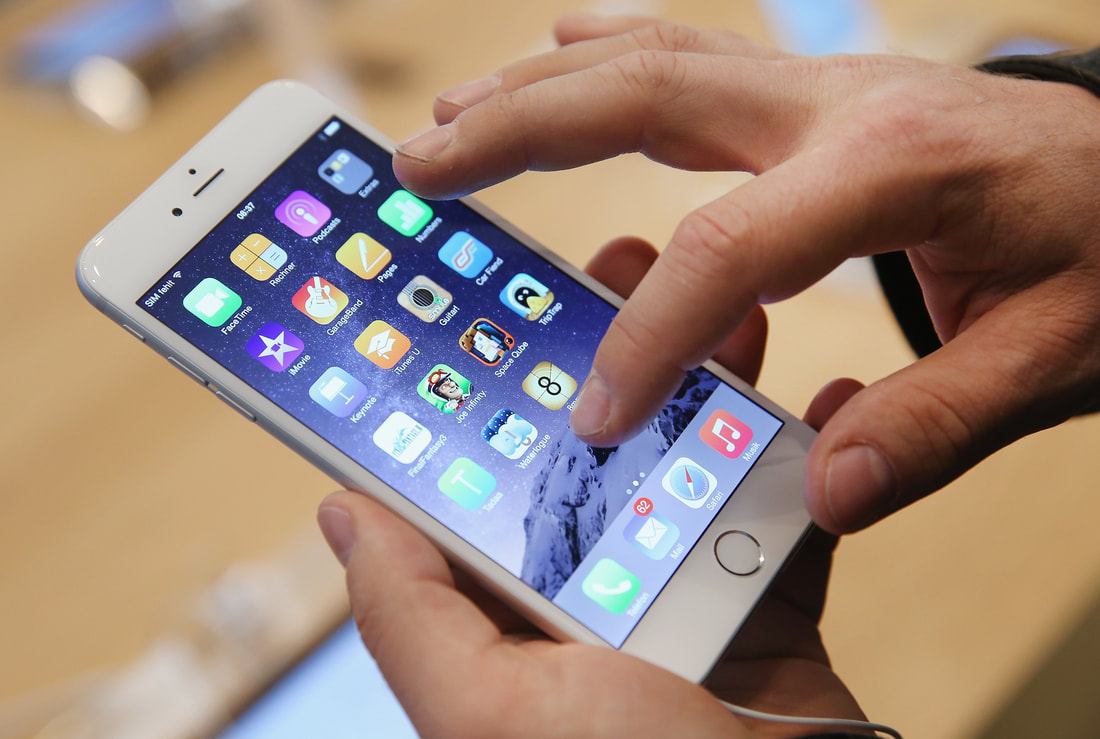
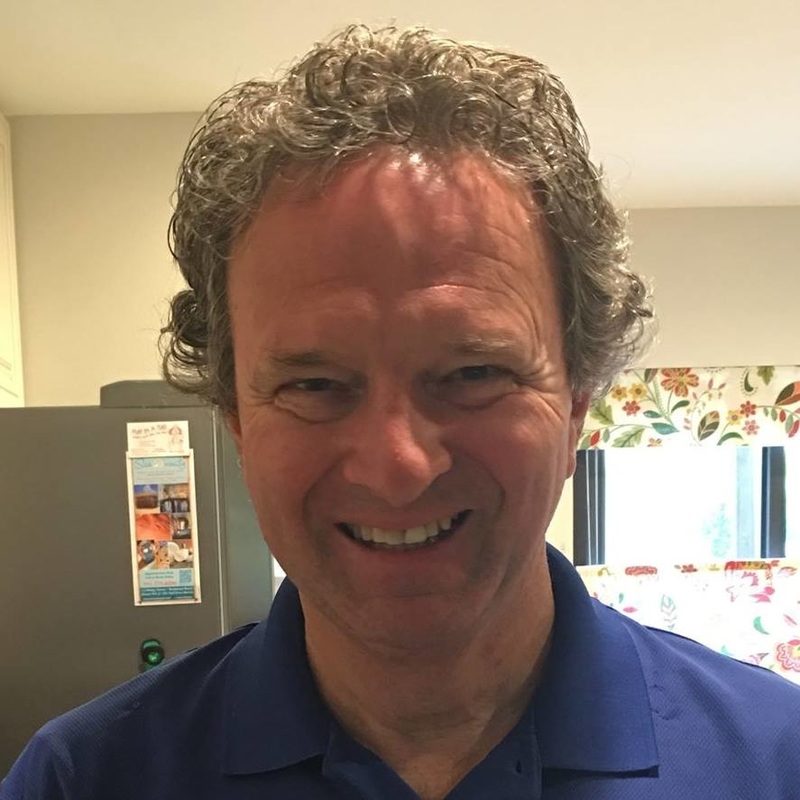
 RSS Feed
RSS Feed